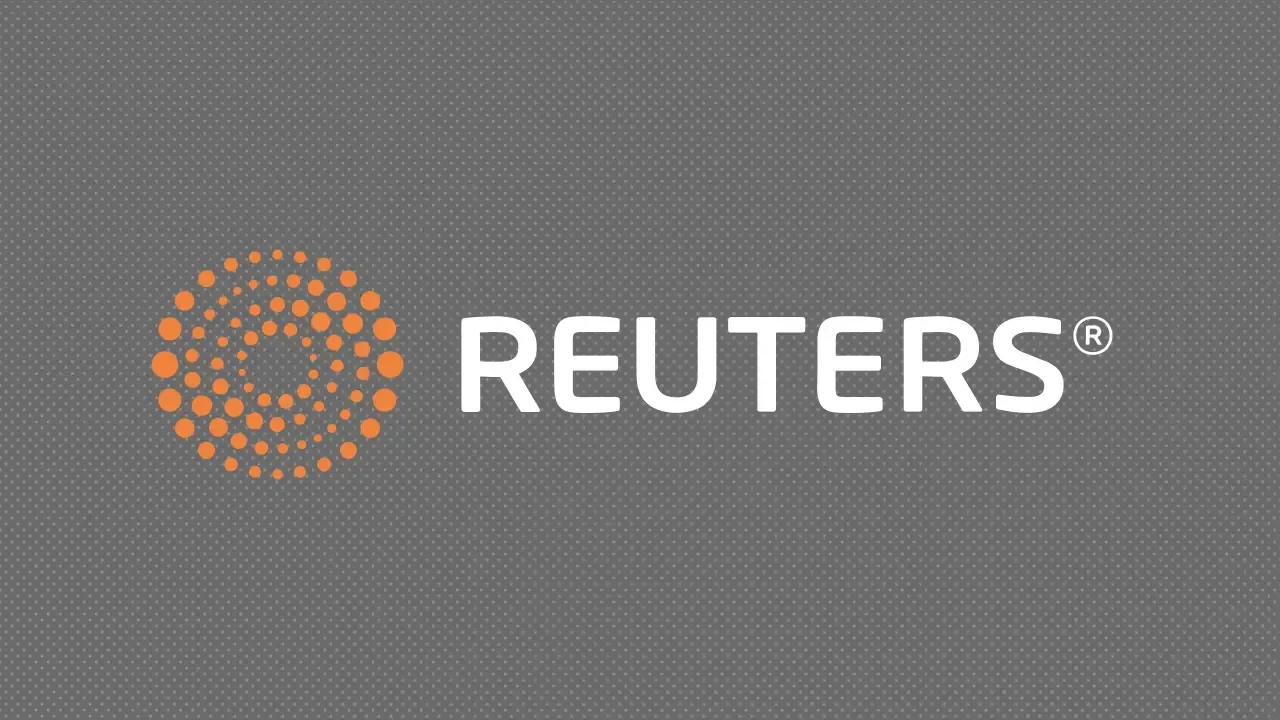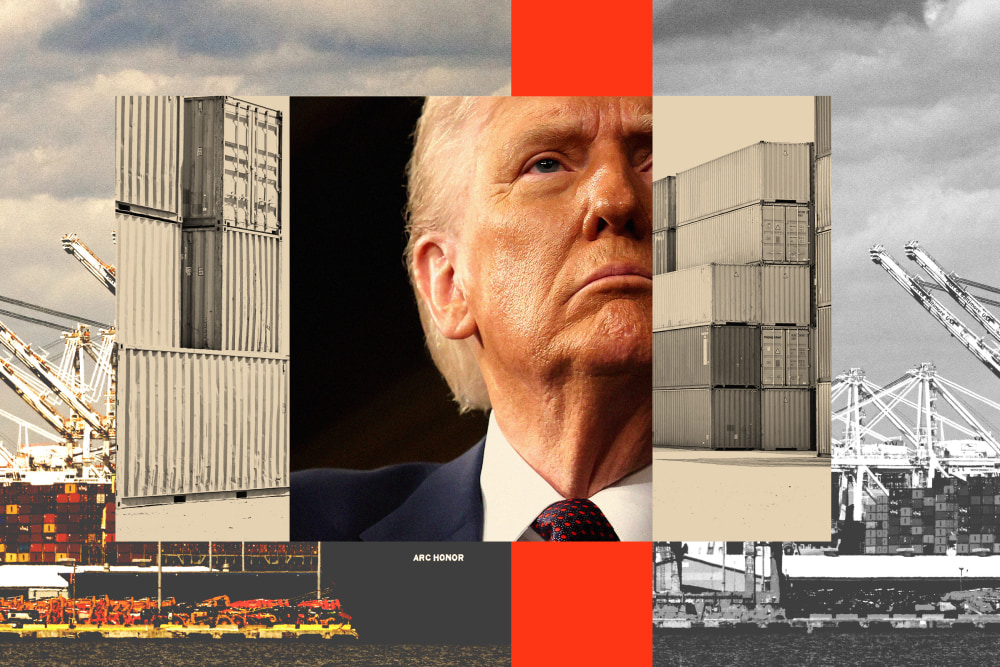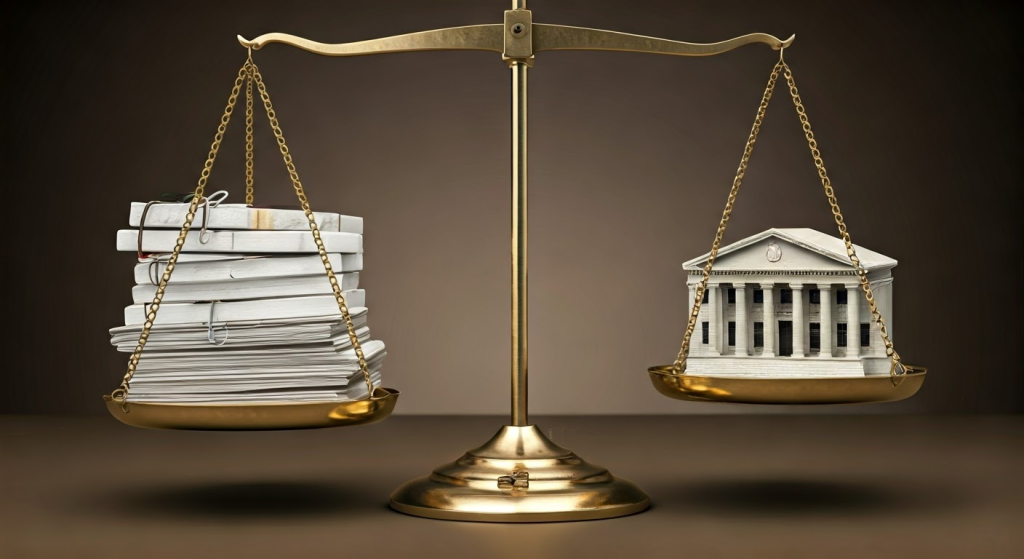from One News PH
Boom! Trump’s “Higher Than Expected” Tariffs Will Be an Epic Shock to Our Standard of Living and to the Global Economy as a Whole
by Michael Snyder
The Economic Collapse Blog
 The global trade war is officially heating up. President Trump just unveiled a series of tariffs that were higher than expected, and business leaders all over the world are absolutely stunned. For many of those that have made a killing importing goods into the United States, their businesses have now been ruined. For many of those that manufacture their goods right here in the United States, President Trump’s tariffs are very welcome news. The tariffs that Trump has just announced will go into effect right away, and stock futures are plunging as I write this article. During the economic chaos that is ahead, there will be winners and there will be losers. But without a doubt, the global trade war that has now fully erupted will certainly be an enormous shock to the global economy.
The global trade war is officially heating up. President Trump just unveiled a series of tariffs that were higher than expected, and business leaders all over the world are absolutely stunned. For many of those that have made a killing importing goods into the United States, their businesses have now been ruined. For many of those that manufacture their goods right here in the United States, President Trump’s tariffs are very welcome news. The tariffs that Trump has just announced will go into effect right away, and stock futures are plunging as I write this article. During the economic chaos that is ahead, there will be winners and there will be losers. But without a doubt, the global trade war that has now fully erupted will certainly be an enormous shock to the global economy.
It is being reported that Trump’s plan includes a 10 percent baseline tariff rate and “additional reciprocal tariffs” on dozens of nations that have been imposing very high tariffs on U.S. imports…
Gold Rises to New High On Tariff, Inflation Worries with Bullish Trend ‘Firmly Intact’
by Ines Ferré
Yahoo! Finance
![]() Wall Street’s bullishness on gold doesn’t appear to be wavering as the precious metal hit yet another all-time high.
Wall Street’s bullishness on gold doesn’t appear to be wavering as the precious metal hit yet another all-time high.
On Tuesday, futures (GC=F) made their 19th intraday record of the year, surging above $3,170 per ounce before paring gains ahead of President Trump’s reciprocal tariff plan announcement expected on April 2.
“Within the commodities complex, long Gold presents the obvious hedge for risky market exposure in our view, especially since the bullish medium-term trend dynamics remain firmly intact,” JPMorgan analysts said in a note on Tuesday.
Most notable is the rapid pace at which gold has risen, notching its best quarterly performance in nearly 40 years.
U.S. Inflation Swaps Price in Big Short-Term Tariff Impact, Flag Recession Risk
by Reuters
Kitco
 NEW YORK, April 1 (Reuters) – Investors in financial derivatives called U.S. inflation swaps are betting that President Donald Trump’s tariffs will have a hefty short-term impact on consumer prices that will recede in the next few years as recession concerns escalate.
NEW YORK, April 1 (Reuters) – Investors in financial derivatives called U.S. inflation swaps are betting that President Donald Trump’s tariffs will have a hefty short-term impact on consumer prices that will recede in the next few years as recession concerns escalate.
Inflation swaps are used to hedge against a rise in prices. They have two participants: the receiver and payer. The receiver seeks protection against rising inflation, while the payer, typically a bank, assumes the risk tied to inflation.
Specifically, the receiver agrees to exchange with the payer a fixed amount for floating payments tied to the Consumer Price Index (CPI) for a given notional amount and period of time.
The Week Ahead: Inflation Data and Big Bank Earnings On Deck
Plus, a swath of major financial names are set to report earnings
by Jake Scott
Schaeffer’s Investment Research
 A wave of inflation data and Federal Reserve commentary awaits investors in the second week of April. While a fresh earnings season gears up, several notable names are set to report. Delta Air Lines (DAL) will headline midweek, offering a look at travel demand ahead of summer. Then on Friday, major financial institutions will step into the spotlight with quarterly results from BlackRock (BLK), JPMorgan Chase (JPM), Morgan Stanley (MS), and Wells Fargo (WFC).
A wave of inflation data and Federal Reserve commentary awaits investors in the second week of April. While a fresh earnings season gears up, several notable names are set to report. Delta Air Lines (DAL) will headline midweek, offering a look at travel demand ahead of summer. Then on Friday, major financial institutions will step into the spotlight with quarterly results from BlackRock (BLK), JPMorgan Chase (JPM), Morgan Stanley (MS), and Wells Fargo (WFC).
Below is a list of key market events scheduled for the upcoming week. All economic dates listed below are tentative and subject to change.
Monday, April 7, features consumer credit data.
Tuesday, April 8, brings the National Federation of Independent Business (NFIB) small business optimism index.
Wholesale inventories and the minutes from the March Federal Open Market Committee (FOMC) meeting are due Wednesday, April 9.
Trump’s ‘Liberation Day’ Unfolds with New Reciprocal Tariffs Sparking Fear, Uncertainty
The trade war is expected to intensify Wednesday with the introduction of expansive global duties on goods shipped to the U.S.
by Rob Wile
NBC News
 President Donald Trump is expected to roll out the largest set of new trade barriers in generations Wednesday — calling it “Liberation Day” — shortly after U.S. stock markets close.
President Donald Trump is expected to roll out the largest set of new trade barriers in generations Wednesday — calling it “Liberation Day” — shortly after U.S. stock markets close.
What exactly Trump has in store, and how it will impact the economy, still isn’t fully known. He’s already announced his intention to impose tariffs on imported autos and auto parts, and he suggested the fresh duties would be both reciprocal with other nations and target specific sectors like pharmaceuticals and computer chips.
Trump’s announcement is expected at 4 p.m. at the White House Rose Garden. But the ongoing doubt about exactly what Trump would decide on — he and his team were reportedly still debating major elements of the tariffs in the days and hours before the president’s announcement — has generated unease and confusion among businesses and consumers alike.
Trade Fragmentation to Curb Global Growth, Raise Inflation, ECB’s Schnabel Says
by Reuters
Kitco
 FRANKFURT, April 2 (Reuters) – Global inflation could surge in case of trade fragmentation caused by a trade war and growth is likely to take a hit, European Central Bank Isabel Schnabel said in a presentation on Wednesday.
FRANKFURT, April 2 (Reuters) – Global inflation could surge in case of trade fragmentation caused by a trade war and growth is likely to take a hit, European Central Bank Isabel Schnabel said in a presentation on Wednesday.
A severe disruption in global trade could push up inflation by several percentage points in the initial years while ‘mild decoupling’ would have an impact below 1%, which could take years to dissipate, Schnabel said in her slides.
“Trade fragmentation is structurally harmful for economic growth and inflation,” she said.
Do Inflationary Expectations Cause General Increases in Prices?
by Frank Shostak
Mises.org
 Many believe the key cause to a general increase in prices are so-called “inflationary expectations.” For instance, if there is a large increase in the prices of oil, individuals will start forming expectations for higher inflation ahead. Consequently, individuals will speed up their purchases of goods and services at present, thereby raising the demand for goods and services, all other things being equal. This is supposed to set in motion general price increases. According to the former Fed Chairman Ben Bernanke, “Undoubtedly, the state of inflation expectations greatly influences actual inflation and thus the central bank’s ability to achieve price stability.”
Many believe the key cause to a general increase in prices are so-called “inflationary expectations.” For instance, if there is a large increase in the prices of oil, individuals will start forming expectations for higher inflation ahead. Consequently, individuals will speed up their purchases of goods and services at present, thereby raising the demand for goods and services, all other things being equal. This is supposed to set in motion general price increases. According to the former Fed Chairman Ben Bernanke, “Undoubtedly, the state of inflation expectations greatly influences actual inflation and thus the central bank’s ability to achieve price stability.”
It is believed that, if inflationary expectations could be made less responsive to various shocks, then, over time, this would mitigate the effects of these shocks on the momentum of the prices of goods and services. Most commentators believe central bank policies can be employed to bring individuals’ inflationary expectations to a state of equilibrium.
Status of U.S. Dollar as Global Reserve Currency: Central Banks Diversify into Other Currencies and Gold
by Wolf Richter
Wolf Street
 The surge of the “nontraditional reserve currencies.”
The surge of the “nontraditional reserve currencies.”
The status of the US dollar as the dominant global reserve currency has helped the US fund its twin deficits, and thereby has enabled them: the huge fiscal deficit every year and the massive trade deficit every year. The reserve currency status comes from other central banks (not the Fed) having purchased trillions of USD-denominated assets such as Treasury securities, other government securities, corporate bonds, and even stocks. The dollar status as the dominant reserve currency has been crucial for the US, and as that dominance declines ever so slowly, risks pile up ever so slowly.
Better Than the Bank, but Just Barely
by James Hickman
Schiff Sovereign
 We recently received a question from a reader asking— given all the volatility in the market, what do we think of US government bonds right now as an asset class?
We recently received a question from a reader asking— given all the volatility in the market, what do we think of US government bonds right now as an asset class?
First, it’s absolutely true that there has been a sudden surge in uncertainty.
In some respects, it’s astonishing how much of this has emerged just over the last 6–8 weeks. Consumer sentiment, business sentiment, and investor confidence have all cratered since mid-February.
This is a very difficult environment in which to do business.
Companies have no idea what the world is going to look like, literally two days from now. That’s crazy.
Why the Global Recession Will Be Deeper and Longer Than Pundits Anticipate
by Charles Hugh Smith
Of Two Minds
 The global recession will be deeper and longer than those relying on models based on the past two decades of hyper-globalization and hyper-financialization anticipate.
The global recession will be deeper and longer than those relying on models based on the past two decades of hyper-globalization and hyper-financialization anticipate.
While everyone focuses on conflicts between nations, few look at the problems shared by nations. Richard Bonugli and I discuss both sets of problems in our latest podcast.
The conflict sphere is dominated by the trade wars that are bubbling up here in the first inning of the global rebalancing of national interests and global trade/financial frameworks. Supporting these frameworks benefits participating nations until they don’t, at which point they’re jettisoned.
The conviction that these frameworks, linch-pinned by the U.S. since the end of World War II in 1945, no longer serve America’s core national security interests, is reaching a rough consensus, and as a result some describe the U.S. as a “rogue superpower.” In other words, now that the U.S. is no longer the dumping ground for global surpluses of production, it’s seen as “going rogue.”
